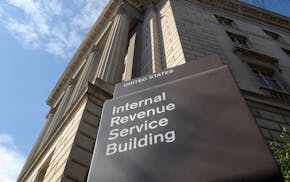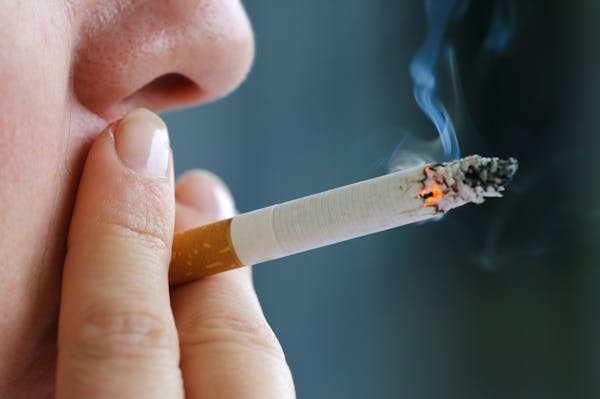FATAL CHASE
Grief is real, but is State Patrol at fault?
Oh, man, I want to be very careful here, because I cannot fathom the pain of the family of the young guy killed in the car crash resulting from another driver fleeing the State Patrol ("Grieving family questions deadly chase," Sept. 10). In no way am I discounting the family's anger over this senseless death.
But directing this anger at the State Patrol is misguided. Their wrath should be squarely laid on the guy driving with a suspended license and suspected of being under the influence — not with the cops trying their best to get the guy off the road.
Let's focus our efforts to get those who have been previously stopped and ticketed to have some "real" consequences for their actions, before they kill someone. My sympathy to the family — and to the patrol officer who was involved. He did the right thing in attempting to get a dangerous driver stopped. Unfortunately, the wrong guy died in the crash.
JIM STROMBERG, White Bear Lake Twp.
• • •
It occurred to me years ago that new technology would reduce the need for such chases in populated areas. Where is it?
Some suggestions: The Twin Cities area has signal-light-changing devices at some intersections that enable fire trucks to speed through on green. Use these, and more of them, for police chases, too. Or how about using intersection cameras for tracking or simply getting the license number? A Boston Marathon bomber was detected from overhead with infrared; target position locations are tracked using microwave cellphone towers, helicopters, drones and satellites. Attach a trackable signal to a target vehicle using an adhesive, hollow-point bullet that splashes a device or distinctive chemical heat signal on the car surface; maybe a laser could do this. Or, heck, just using the police car camera to get the license number would be more prudent than chasing at high speed through the city.
If private enterprise has avoided developing technologies for this purpose because of projected low return, then get one of our national product development laboratories to generate it, as they do for basic drugs or improved respiratory masks, and hand it off to a nonprofit association of police departments or the like. Such technology would certainly save a lot of public money that goes for replacing vehicles and officers, lawsuits, insurance, hospital bills, and compensating victims and property owners.
RICHARD PATTEN, Minneapolis
• • •
NICOLLET MALL
Facelift is probably another futile effort
I'm really, really tired of seeing my taxes and bonding capacity being spent on futile efforts to revive our downtown as a retail destination ("Facelift for Nicollet Mall is one step closer," Sept. 9). Block E, the Shubert Theater, Gaviidae Commons and City Center all made money for the subsidized developers who jumped ship as soon as their contracts allowed.
Why would any rational person believe that a streetcar line or new light fixtures — both proposed as stimuli for street-level retail — would meet a fate any different from these older failures?
If there is truly a compelling retail idea, it should come from — and be funded by — the private sector.
JOHN RISKEN, Minneapolis
• • •
WHITE BEAR LAKE
Maybe people shouldn't water the pavement?
It is hard to believe there is a problem with water supply in White Bear Lake ("Saving White Bear Lake," Aug. 31) when one can travel any given street, as I did Saturday after noon, and find sprinklers going full blast, well before the allotted time for sprinkling, which is after 5 p.m. and before 10 a.m. Most of the time the precious water is flung into the street to be lost in the sewers.
Dry as the area is now, watering does little good. It seems to me these illegal users should be fined or at least given a serious lecture on the need for conservation at all times and most particularly now when we need to take care of our water supply.
VIRGINIA MACKAY, White Bear Lake
MINIMUM WAGE
There's theory, and then there's economic reality
I agree with economist Michael McIlhon that good economic policy should do more than one thing ("Raise wages? Actually not so helpful," Sept. 8). Increasing the minimum wage will indeed do more than one thing:
1) It will raise a certain number of working families out of poverty.
2) It will reduce government spending to the extent that taxpayers subsidize minimum-wage working families with government benefits.
3) It will result in more money flowing into local small business. Low-income families spend their additional income locally, on food and services. Although I cannot match Mr. McIlhon's expertise as an economist, I do have some experience as owner and operator of several companies in Wright County. I can say with confidence that if a small business is asked to choose between lower taxes, lower labor costs or new customers, it will choose new customers — every time.
JOHN DEITERING, Buffalo
• • •
I comment on the minimum wage as a retired restaurant manager. If I had wished to pay my employees a living wage, I had to compete with the store down the street that did not. Many people would eat there to save 5 cents on their burgers. This makes a fair minimum wage the only practical way to help the working poor. It is not anticompetitive; it is a level playing field.
DAVID NEWVILLE, Coon Rapids
Readers Write: Politicized education, presidential debates, election strategies, small-town papers

Taxes increasingly paying for the past — not the future
!["Since the [Hennepin Healthcare System] Board took control in 2007, CEO pay increased by more than 142%. Meanwhile, that same board sunsetted employee](https://arc.stimg.co/startribunemedia/J7MD7DSJWMP3KYIYUSCQTABOAA.jpg?h=91&w=145&fit=crop&bg=999&crop=faces)

